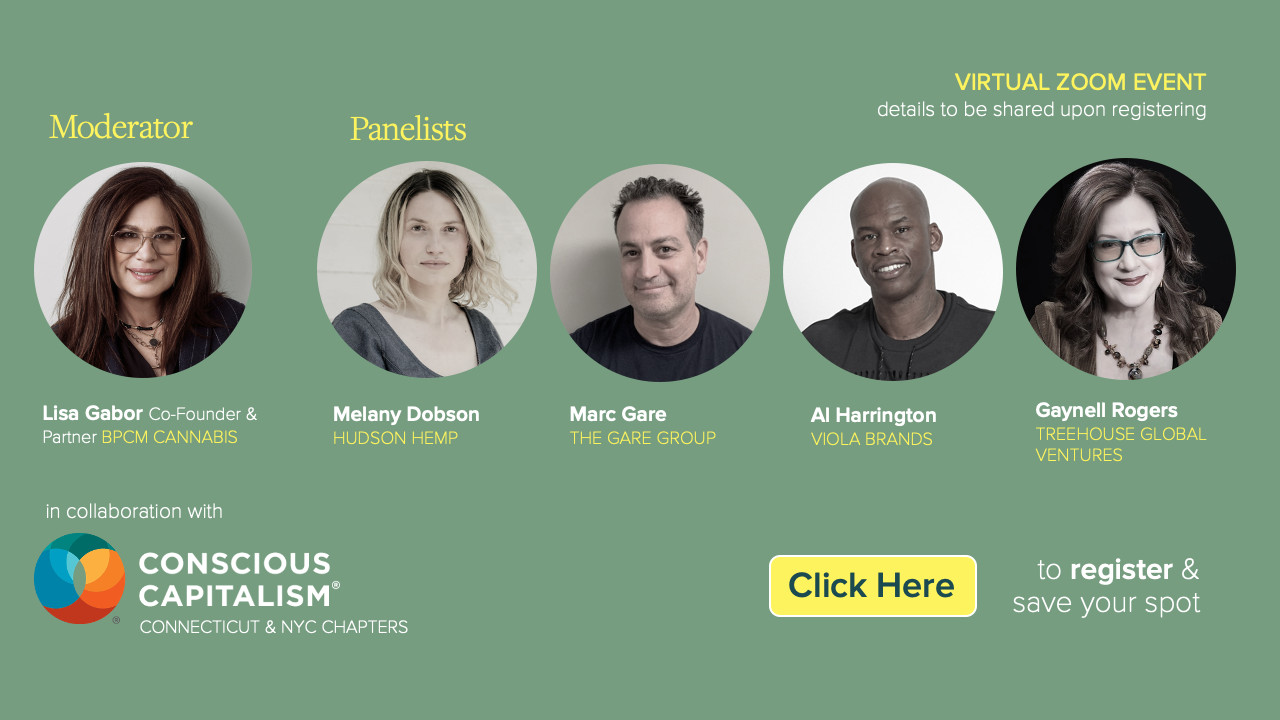This past week, the Conscious Capitalism NYC community gathered for our 3rd event in the “Higher Purpose” Series which aims to explore all the ways in which Purpose can help leaders to better manage their organizations.
In June, we kicked it off with a workshop on Purposeful Communications, and in September our speakers looked at Purposeful Change Management. Our third event was “Purposeful Operations” and it featured two fabulous guest speakers from IBM (one of the world’s largest conscious companies) and TerraCycle (a small but growing one) sharing how they intentionally leverage purpose across their operations in everything from recruiting to product development.
Liana T. Scobie, the Vice President of Staff and Administration at TerraCycle explained the company’s purpose which is to eliminate the idea of waste by creating useful materials out of every imaginable pre- and post-consumer waste stream. TerraCycle’s provocative purpose most obviously manifests itself in product development, but it also shows up in how the company solves day-to-day operational problems, how the CEO leads, the feel of its culture and even the look of its offices. It has even led to the company being featured in two separate reality television series: Garbage Moguls on National Geographic TV and Human Resources on PivotTV.
One of the advantages of being a 250-person organization is that Terracycle can have a purpose that is so highly focused, directly evident, and inescapable. And that has proven critical in sustaining and aligning the organization through rapid growth across 20 countries.
But Doris Gonzalez, the Director of Corporate Citizenship at IBM, shared a very different story of corporate purpose. As one of the largest and most recognized technology brands in the world, with more than 400,000 employees around the globe and a diverse array of products and services, IBM had to take a different approach to defining its purpose. In a company-wide “Values Jam,” employees were invited to help define the essence of the company’s values and purpose. The statement they arrived at – “Be Essential” – may initially seem self-serving. After all, isn’t IBM’s strategy to embed itself as the essential vendor of the technologies that will most define our lives in the decades ahead (artificial intelligence, the Internet-of-things, etc)?
However, the company also wants people to remain essential, and so its purpose is backed up by a set of values and behaviors at the heart of the company’s culture. And they mandate that A.I. be developed to augment rather than replace human intelligence, that data and insights belong to their creators, and that technologies must be transparent and explainable.
IBM’s focus on being essential to people, not just technology, has guided the company’s amazing track-record of progressive acts including hiring the first disabled worker (1914), promoting the first woman executive (1940), its recent stand on the “Dreamers” legislation and its efforts to help single-moms flourish at work. In each case, IBM chose to be an essential and positive part of people’s lives, and not just an essential technology.
These two companies reminded us that, no matter the size of your organization, purpose is a powerful tool for leaders to leverage to improve their operations and to be engines of social progress.
Unsure how strong your purpose is? Take our self-diagnostic survey and then reach out to learn more about building your purpose and becoming a part of the Conscious Capitalism NYC community.



